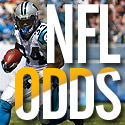Happy endings or artificial heroes?
08/02/2001
Codding Home / Sports Channel / Bullz-Eye Home
Sports fans across the world are undergoing some sort of genetic mutation. It seems they no longer care about winners and losers, hometown heroes or the location of the nearest beer vendor.
Okay, so we'll always care about that last one.
But seriously, instead of savoring victories, embracing record-setters and coping with defeat the way we've done for decades now, many fans are more interested in uncovering the sports world's latest conspiracy. I don't know if it's too much reality television, or the WWF, or maybe even the X-Files. But whatever the reason, more and more people are trading in their foam fingers and bobbleheads for circumstantial evidence and skepticism.
Take Lance Armstrong's three-peat in the Tour de France, for example. Forget about his athletic accomplishments for a moment and remember that, only five years ago testicular cancer, which eventually spread to his brain, abdomen and lungs, had Armstrong practically on his deathbed. Yet somehow, armed with a fierce will to live and his wife's unwavering support, he emerged victorious from the most grueling battle of his life.
But Armstrong wasn't done. He overpowered the entire field of the 1999 Tour de France, bringing home an improbable victory a mere two years after he conquered an unconquerable enemy. Then last year Armstrong once again grabbed onto the Tour's yellow jersey and never let go, riding to another masterful victory, his second in two years.
And finally, at the age of 30, Armstrong wrapped up his three-peat this year with one more stunning performance, using the Tour de France's demanding mountain stages to open up a staggering lead, a lead he once more refused to relinquish.
Dominating this race for three years is a fantastic accomplishment in of itself, but for a man who just five years ago was given a 50 percent chance to live by his doctors, the feat is even more astonishing. Yet there are plenty of people who aren't ready to give Armstrong the respect he so richly deserves.
You see, Armstrong's sport has a reputation for being about as drug-free as a Grateful Dead show. Performance-enhancing substances have infected bicycle racing in much the same way cancer invaded Armstrong's body in 1996. Every year seemingly a handful of racers are sent home from the Tour de France after testing positive for some sort of banned substance. In fact, Spanish rider Txema Del Olmo was dropped from his team this year after testing positive for what has been termed "abnormalities," whatever the hell that means.
Needless to say, there always is plenty of skepticism surrounding the Tour and its riders, especially the elite ones. That's where Armstrong comes in. Although he's passed every single drug test he's ever taken and he's a vocal anti-drug supporter, some cynics just can't let it go. Their thinking, I suppose, goes something like this: "We have a sport crawling with drug abuse on one hand, and on the other we've got one rider who's absolutely dominated this drug-infested sport for the past three years. Well hell, put those two hands together and we've got to have a dope-using rider, right?"
Sorry, but A + B does not equal C in my book. I don't care what that damn Pythagorean Theorem says.
Yes, Armstrong admits to being friends with Michele Ferrari, an Italian physician who has been linked on several occasions to drug use in sports, but apparently we're not only acting upon circumstantial evidence these days, we've also adopted the "guilty by association" philosophy in the United States. Perhaps Armstrong's judgment in carrying on his relationship with Ferrari in the midst of this controversy could be questioned, but not his morals and ethics.
While there certainly has been a quiet whisper of allegations surrounding Armstrong's win this year, the accusations were echoing loudly across the world in 1999. After several negative drug tests, though, the Austin, Texas native has finally been able to silence most of his critics but sadly, despite the distinct lack of evidence, not everybody appears to be satisfied.
Armstrong isn't the only athlete who's found himself in the eye of a conspiracy tornado. San Francisco outfielder Barry Bonds, the 37-year-old future Hall of Famer with 540 career homers, leads baseball this year with 46 round-trippers. In fact, Bonds is on pace to challenge Mark McGwire's Major League-record 70 homers in a single season, set all the way back in 1998. But because Bonds has never hit even 50 home runs in one year, people are suspicious.
I'm not a Barry Bonds fan at all. Much like Deion Sanders, the tag-team duo of his inflated ego and flapping mouth is absolutely unbearable. But I can't take away from what this guy's done both throughout his career and in 2001. He's unquestionably one of the best players to ever slide on a glove and trot out to left field, and with eight Gold Gloves, three MVPs, 10 All Star appearances, and a realistic shot to be the first 500-homer/500-stolen base guy in the history of the game, Bonds will find his way to Cooperstown on the first ballot. Unquestionably.
But even with all that on his résumé, some people actually are questioning the legitimacy of Bonds' home run barrage this year. We're talking about a guy who had 494 career homers before this season began -- he obviously knows how to hit the ball out of the park. So what that he's never hit 50 in a season before? Just because he's going to do it this year, he must be popping steroids? Of course, that's the only explanation, right? It wouldn't have anything to do with the fact that this is the first time in his 15-year career that Bonds has lifted weights, would it? Again, this rationale of thinking blows my mind. It's infuriating. It's maddening.
It's really unfortunate.
It's unfortunate for the people following that kind of logic, but it's extremely unfortunate for someone like Bonds, a man who may not be America's sweetheart, but throughout his highly productive career he's played the game the right way. Again, he's not the classiest guy on the field, nor has he been a model citizen off it. Neither was Ty Cobb. Neither was Babe Ruth. But Bonds certainly doesn't deserve the kind of cynicism that's followed him around this year.
This new breed of sports fan/conspiracy theorist doesn't care about such trivial things as who their targets are. Armstrong is fair game. So is Bonds. Even Michael Jordan, now serving as team president for the Washington Wizards, has seen his name run through the mud this past year.
Amidst reports that Jordan was contemplating a return to the NBA, the Wizards won the NBA's Draft Lottery this past year, giving them the first pick in the July draft. The shrill cries of "phony" and "fixed" were immediately heard from all over the world. It seemed too perfect that, with Michael apparently on his way back to the game, he'd also have the top pick in the draft to help stockpile his team for one more run at a ring.
Of course, NBA conspiracy theorists may be the most loyal of the bunch. They claimed David Stern and the rest of the league execs wanted to see the Lakers in the NBA Finals this year, and the refs made it so. Then, wanting to capitalize on an Allen Iverson/Kobe Bryant match up, Stern apparently wanted the Sixers in the Finals as well. Again, the refs made it so.
Man, if NBA refs are so influential, maybe they could get me a date with Alyssa Milano.
Even NASCAR can't escape this influx of incredulity. Dale Earnhardt Jr., whose father was killed during the Daytona 500 this past February, won the Pepsi 400 at Daytona in July. Because it was the first race on that track since his father's death, the skeptics surfaced as soon as the younger Earnhardt's car crossed the finish line. They said NASCAR fixed the race, that the drivers allowed Earnhardt Jr. to win this memorable race because it would make a great story for NASCAR in particular and all sports in general. Of course, it didn't matter that Earnhardt Jr. led for 116 of the race's 160 laps, did it? The story is just too good to be true, so there's no way the victory was pure.
I'm so tired of this garbage. When did fans stop believing in the integrity of the games they love? Sure, there's bound to be some corruption involved in the world of sports (Don King, I'm looking in your general direction...). But if there is no evidence suggesting otherwise, why can't we just go back to believing that someone like Barry Bonds can have a career year at the age of 37? Is it really so hard to accept that the Lakers and 76ers were the best teams in the NBA last season, or that Kobe, Iverson and Shaq, three of the absolute best in the NBA, led their respective teams to the title game? That doesn't seem so far-fetched to me. Neither does Earnhardt's Pepsi 400 victory.
As for Armstrong, I choose to believe that stories like his still do exist. Instead of embracing some malicious scheme, I'd much rather accept that a conclusion as majestic as this wasn't achieved on the shoulders of impurity. I'm too busy admiring Armstrong's accomplishments on his bike and in life to consider anything else.
Keep it up, Lance.
In the Bullz-Eye
The NFL. With the tragic death of Minnesota offensive lineman Korey Stringer following two-straight days of rigorous workouts in 90-plus degree weather -- not to mention Florida freshman Eraste Autin's death after suffering a heatstroke -- the league as a whole needs to take a closer look at its training camp practices, especially in extreme weather conditions. Players go through these tough workouts every preseason, and while the only other NFL training camp fatality is believed to be J.V. Cain, a St. Louis tight end who died of a heart attack in 1979, two fatalities is too many. Just like the death of Dale Earnhardt in February had NASCAR questioning its safety precautions, you'd hope the NFL would work to prevent a disaster of this magnitude from happening again. A good sign: Commissioner Paul Tagliabue ordered all 31 teams to review their own camp rules following Stringer's death.






